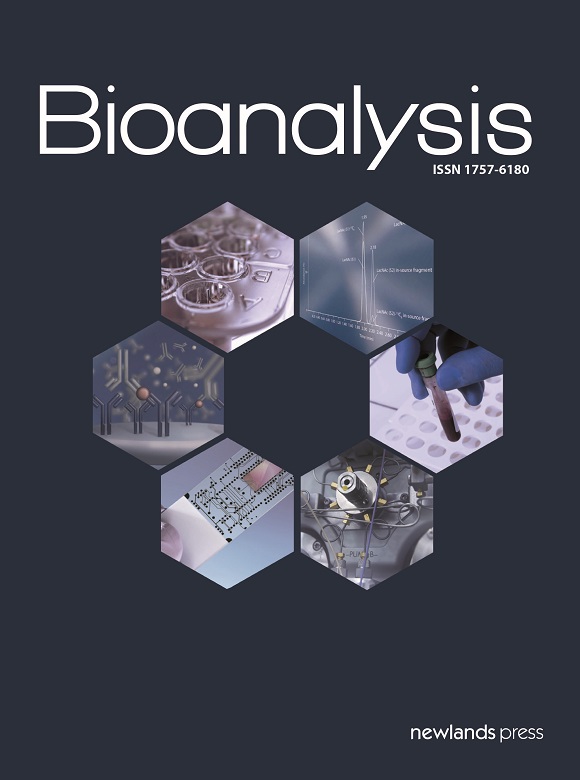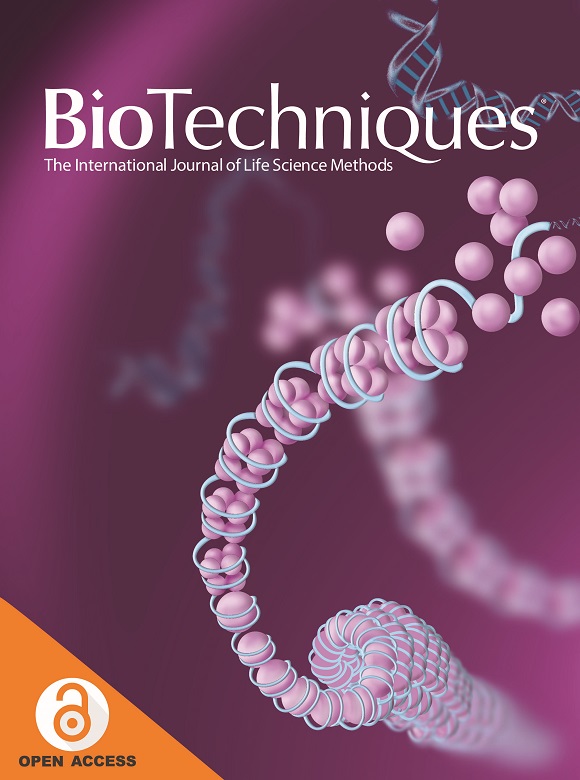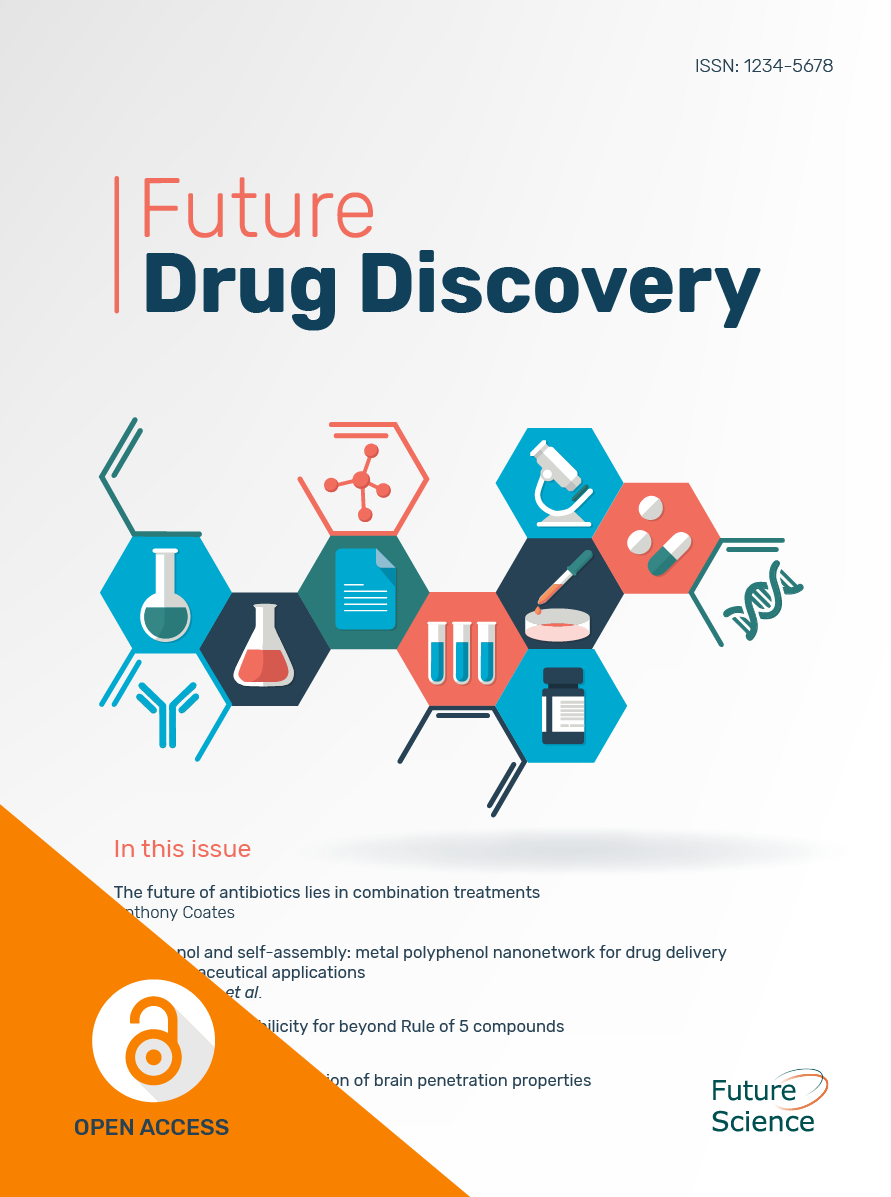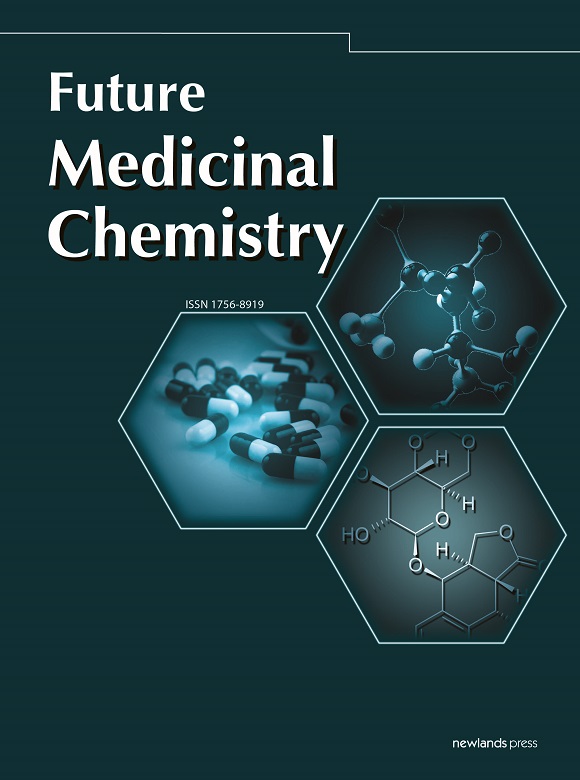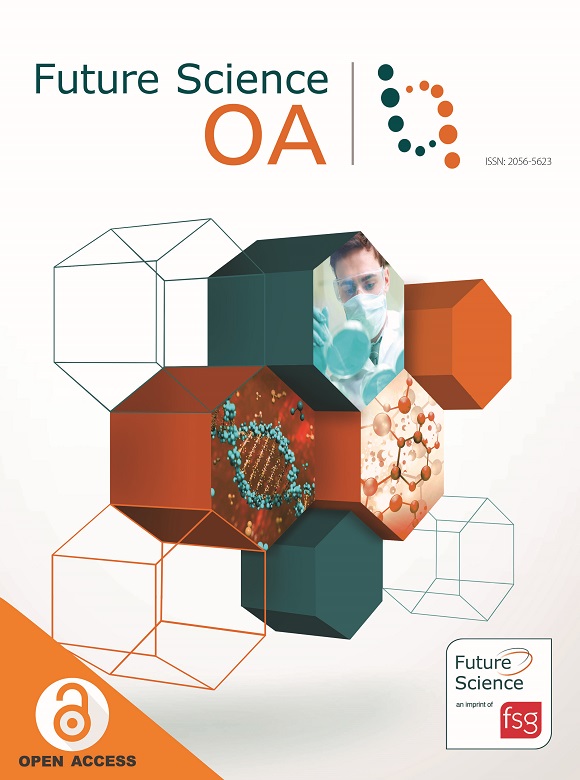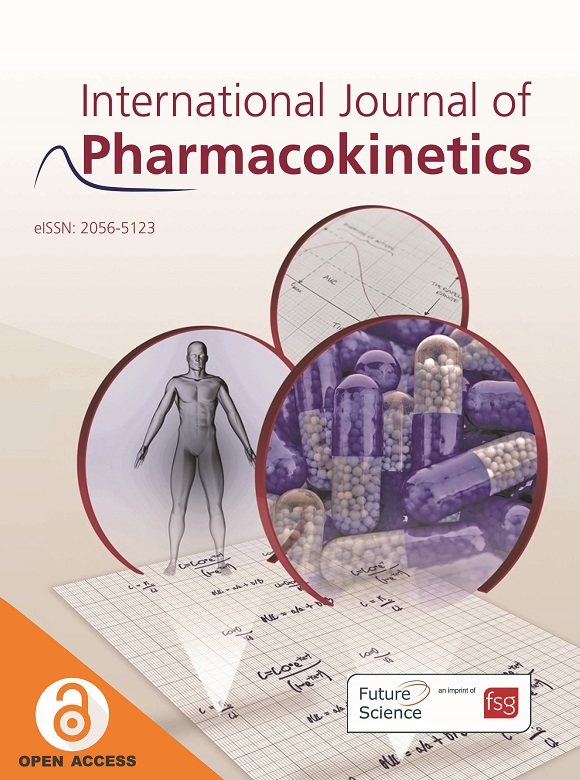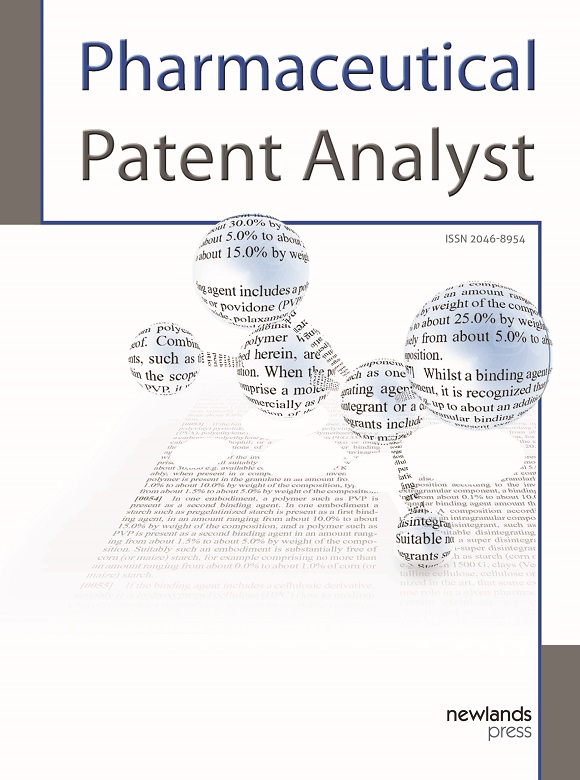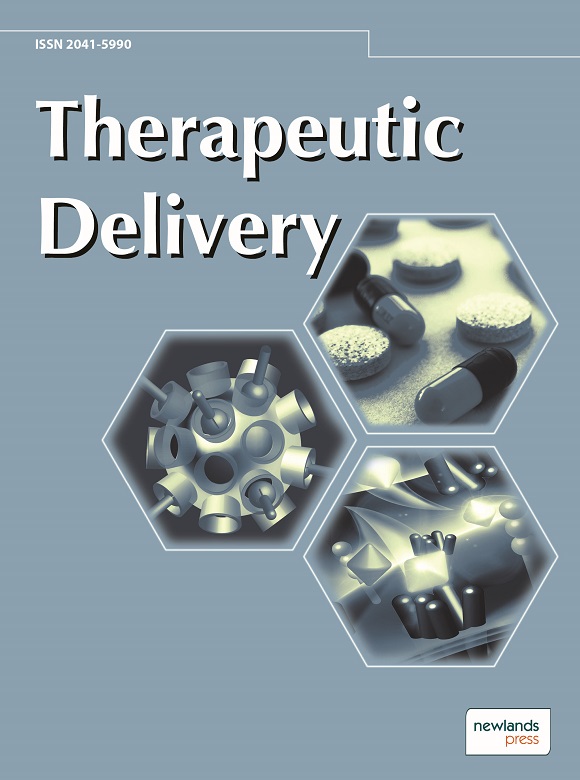Strategies to overcome acquired resistances conferred by mutations in the kinase domain of EGFR
Abstract
Deregulation of EGFR is involved in the development of many cancers. The inhibition of EGFR kinase activity has been clinically validated as a promising approach for the treatment of non-small-cell lung cancer (NSCLC). However, all NSCLC patients who initially benefited from first-generation EGFR inhibitors eventually develop drug resistance. A point mutation at the gatekeeper position, T790M in EGFR kinase domain accounts for more than 50% of acquired resistance. Therefore, second- and third-generation EGFR inhibitors have been developed to overcome the resistance conferred by the gatekeeper mutation. This review has highlighted recent advances in overcoming acquired resistance for the development of each generation of EGFR inhibitors along with their potential issues, and urgent quest for the development of new generation of EGFR inhibitors.
Papers of special note have been highlighted as: • of interest; •• of considerable interest
References
- 1 . Tyrosine kinases as targets for cancer therapy. N. Engl. J. Med. 353(2), 172–187 (2005).
- 2 . Untangling the ErbB signalling network. Nat. Rev. Mol. Cell Biol. 2(2), 127–137 (2001).
- 3 Genetic pathways to glioblastoma: a population-based study. Cancer Res. 64(19), 6892–6899 (2004).
- 4 . Epidermal growth factor-related peptides and their receptors in human malignancies. Crit. Rev. Oncol. Hematol. 19(3), 183–232 (1995).
- 5 Frequent expression of a mutant epidermal growth factor receptor in multiple human tumors. Cancer Res. 55(23), 5536–5539 (1995).
- 6 . Epidermal growth factor receptor mutations in lung cancer. Nat. Rev. Cancer 7(3), 169–181 (2007). •Describes the results of genetic, biochemical and clinical studies focused on somatic mutations of EGFR that are related to EGFR-targeted therapies.
- 7 . ErbB receptors and signaling pathways in cancer. Curr. Opin. Cell Biol. 21(2), 177–184 (2009).
- 8 . Cancer. Addiction to oncogenes – the Achilles heal of cancer. Science 297(5578), 63–64 (2002).
- 9 . Blocking of EGF-dependent cell proliferation by EGF receptor kinase inhibitors. Science 242(4880), 933–935 (1988).
- 10 A specific inhibitor of the epidermal growth factor receptor tyrosine kinase. Science 265(5175), 1093–1095 (1994).
- 11 ZD1839 (Iressa): an orally active inhibitor of epidermal growth factor signaling with potential for cancer therapy. Cancer Res. 62(20), 5749–5754 (2002).
- 12 Induction of apoptosis and cell cycle arrest by CP-358,774, an inhibitor of epidermal growth factor receptor tyrosine kinase. Cancer Res. 57(21), 4838–4848 (1997).
- 13 BIBW2992, an irreversible EGFR/HER2 inhibitor highly effective in preclinical lung cancer models. Oncogene 27(34), 4702–4711 (2008).
- 14 Multi-institutional randomized Phase II trial of gefitinib for previously treated patients with advanced non-small-cell lung cancer (The IDEAL 1 Trial) [corrected]. J. Clin. Oncol. 21(12), 2237–2246 (2003).
- 15 Efficacy of gefitinib, an inhibitor of the epidermal growth factor receptor tyrosine kinase, in symptomatic patients with non-small-cell lung cancer: a randomized trial. JAMA 290(16), 2149–2158 (2003).
- 16 Determinants of tumor response and survival with erlotinib in patients with non-small-cell lung cancer. J. Clin. Oncol. 22(16), 3238–3247 (2004).
- 17 Activating mutations in the epidermal growth factor receptor underlying responsiveness of non-small-cell lung cancer to gefitinib. N. Engl. J. Med. 350(21), 2129–2139 (2004).
- 18 EGFR mutations in lung cancer: correlation with clinical response to gefitinib therapy. Science 304(5676), 1497–1500 (2004).
- 19 EGF receptor gene mutations are common in lung cancers from “never smokers” and are associated with sensitivity of tumors to gefitinib and erlotinib. Proc. Natl Acad. Sci. USA 101(36), 13306–13311 (2004).
- 20 Clinical definition of acquired resistance to epidermal growth factor receptor tyrosine kinase inhibitors in non-small-cell lung cancer. J. Clin. Oncol. 28(2), 357–360 (2010).
- 21 EGFR mutation and resistance of non-small-cell lung cancer to gefitinib. N. Engl. J. Med. 352(8), 786–792 (2005). •• Discovers T790M EGFR mutation in patients who received gefitinib treatment and relapsed.
- 22 Acquired resistance of lung adenocarcinomas to gefitinib or erlotinib is associated with a second mutation in the EGFR kinase domain. PLoS Med. 2(3), e73 (2005). •• Discovers T790M EGFR mutation in patients who received gefitinib or erlotinib treatment and relapsed.
- 23 . The resurgence of covalent drugs. Nat. Rev. Drug Discov. 10(4), 307–317 (2011).
- 24 . Targeting cancer with small molecule kinase inhibitors. Nat. Rev. Cancer 9(1), 28–39 (2009).
- 25 Antitumor activity of HKI-272, an orally active, irreversible inhibitor of the HER-2 tyrosine kinase. Cancer Res. 64(11), 3958–3965 (2004).
- 26 PF00299804, an irreversible pan-ERBB inhibitor, is effective in lung cancer models with EGFR and ERBB2 mutations that are resistant to gefitinib. Cancer Res. 67(24), 11924–11932 (2007).
- 27 . Rational, biologically based treatment of EGFR-mutant non-small-cell lung cancer. Nat. Rev. Cancer 10(11), 760–774 (2010). •• Describes rational treatment strategies for NSCLC harboring EGFR mutations based on biological studies.
- 28 . Fighting cancer drug resistance: Opportunities and challenges for mutation-specific EGFR inhibitors. Drug Resist. Update 20, 12–28 (2015).
- 29 Structures of lung cancer-derived EGFR mutants and inhibitor complexes: mechanism of activation and insights into differential inhibitor sensitivity. Cancer Cell 11(3), 217–227 (2007). • Discusses the drug senstivity of activating EGFR mutations by biochemical and structural analysis.
- 30 . Structural and mechanistic underpinnings of the differential drug sensitivity of EGFR mutations in non-small-cell lung cancer. Biochim. Biophys. Acta 1804(3), 559–566 (2010).
- 31 Kinetic analysis of epidermal growth factor receptor somatic mutant proteins shows increased sensitivity to the epidermal growth factor receptor tyrosine kinase inhibitor, erlotinib. Cancer Res. 66(16), 8163–8171 (2006).
- 32 . The contents of adenine nucleotides, phosphagens and some glycolytic intermediates in resting muscles from vertebrates and invertebrates. Biochem. J. 152(1), 23–32 (1975).
- 33 Gefitinib or carboplatin-paclitaxel in pulmonary adenocarcinoma. N. Engl. J. Med. 361(10), 947–957 (2009).
- 34 Gefitinib versus cisplatin plus docetaxel in patients with non-small-cell lung cancer harbouring mutations of the epidermal growth factor receptor (WJTOG3405): an open label, randomised Phase 3 trial. Lancet Oncol. 11(2), 121–128 (2010).
- 35 Gefitinib or chemotherapy for non-small-cell lung cancer with mutated EGFR. N. Engl. J. Med. 362(25), 2380–2388 (2010).
- 36 Molecular characteristics of bronchioloalveolar carcinoma and adenocarcinoma, bronchioloalveolar carcinoma subtype, predict response to erlotinib. J. Clin. Oncol. 26(9), 1472–1478 (2008).
- 37 Screening for epidermal growth factor receptor mutations in lung cancer. N. Engl. J. Med. 361(10), 958–967 (2009).
- 38 PTEN loss contributes to erlotinib resistance in EGFR-mutant lung cancer by activation of Akt and EGFR. Cancer Res. 69(8), 3256–3261 (2009).
- 39 The phosphatase and tensin homolog regulates epidermal growth factor receptor (EGFR) inhibitor response by targeting EGFR for degradation. Proc. Natl Acad. Sci. USA 107(14), 6459–6464 (2010).
- 40 BIM expression in treatment-naive cancers predicts responsiveness to kinase inhibitors. Cancer Discov. 1(4), 352–365 (2011).
- 41 Lung cancers with acquired resistance to EGFR inhibitors occasionally harbor BRAF gene mutations but lack mutations in KRAS, NRAS, or MEK1. Proc. Natl Acad. Sci. USA 109(31), E2127–E2133 (2012).
- 42 Reactivation of ERK signaling causes resistance to EGFR kinase inhibitors. Cancer Discov. 2(10), 934–947 (2012).
- 43 MET amplification leads to gefitinib resistance in lung cancer by activating ERBB3 signaling. Science 316(5827), 1039–1043 (2007).
- 44 MET amplification occurs with or without T790M mutations in EGFR mutant lung tumors with acquired resistance to gefitinib or erlotinib. Proc. Natl Acad. Sci. USA 104(52), 20932–20937 (2007).
- 45 HER2 amplification: a potential mechanism of acquired resistance to EGFR inhibition in EGFR-mutant lung cancers that lack the second-site EGFR(T790M) mutation. Cancer Discov. 2(10), 922–933 (2012).
- 46 Activation of the AXL kinase causes resistance to EGFR-targeted therapy in lung cancer. Nat. Genet. 44(8), 852–860 (2012).
- 47 Genotypic and histological evolution of lung cancers acquiring resistance to EGFR inhibitors. Sci. Transl. Med. 3(75), 75ra26 (2011).
- 48 Multiple BCR-ABL kinase domain mutations confer polyclonal resistance to the tyrosine kinase inhibitor imatinib (STI571) in chronic phase and blast crisis chronic myeloid leukemia. Cancer Cell. 2(2), 117–125 (2002).
- 49 A new mutation in the KIT ATP pocket causes acquired resistance to imatinib in a gastrointestinal stromal tumor patient. Gastroenterology 127(1), 294–299 (2004).
- 50 A tyrosine kinase created by fusion of the PDGFRA and FIP1L1 genes as a therapeutic target of imatinib in idiopathic hypereosinophilic syndrome. N. Engl. J. Med. 348(13), 1201–1214 (2003).
- 51 Clinical resistance to STI-571 cancer therapy caused by BCR-ABL gene mutation or amplification. Science 293(5531), 876–880 (2001).
- 52 Irreversible inhibitors of the EGF receptor may circumvent acquired resistance to gefitinib. Proc. Natl Acad. Sci. USA 102(21), 7665–7670 (2005). •• Demonstrates that irreversible EGFR inhibitors may overcome acquired resistance conferred by the gatekeeper T790M EGFR mutation.
- 53 The T790M mutation in EGFR kinase causes drug resistance by increasing the affinity for ATP. Proc. Natl Acad. Sci. USA 105(6), 2070–2075 (2008). • Discusses potential reasons for acquired resistance conferred by T790M EGFR mutation with biochemical and strutural analysis.
- 54 Optimization of 6,7-disubstituted-4-(arylamino)quinoline-3-carbonitriles as orally active, irreversible inhibitors of human epidermal growth factor receptor-2 kinase activity. J. Med. Chem. 48(4), 1107–1131 (2005).
- 55 Synthesis and structure-activity relationships of 6,7-disubstituted 4-anilinoquinoline-3-carbonitriles. The design of an orally active, irreversible inhibitor of the tyrosine kinase activity of the epidermal growth factor receptor (EGFR) and the human epidermal growth factor receptor-2 (HER-2). J. Med. Chem. 46(1), 49–63 (2003).
- 56 . Structure of the epidermal growth factor receptor kinase domain alone and in complex with a 4-anilinoquinazoline inhibitor. J. Biol. Chem. 277(48), 46265–46272 (2002).
- 57 A Phase I study with neratinib (HKI-272), an irreversible Pan ErbB receptor tyrosine kinase inhibitor, in patients with solid tumors. Clin. Cancer Res. 15(7), 2552–2558 (2009).
- 58 Neratinib, an irreversible Pan-ErbB receptor tyrosine kinase inhibitor: results of a Phase II trial in patients with advanced non-small-cell lung cancer. J. Clin. Oncol. 28(18), 3076–3083 (2010).
- 59 Insights into the aberrant activity of mutant EGFR kinase domain and drug recognition. Structure 21(2), 209–219 (2013).
- 60 Preliminary activity and safety results from a Phase I clinical trial of PF-00299804, an irreversible pan-HER inhibitor, in patients (pts) with NSCLC. Presented at: 2008 ASCO Annual Meeting. IL, USA, 30 May–3 June 2008.
- 61 A Phase 2 trial of dacomitinib (PF-00299804), an oral, irreversible pan-HER (human epidermal growth factor receptor) inhibitor, in patients with advanced non-small-cell lung cancer after failure of prior chemotherapy and erlotinib. Cancer 120(8), 1145–1154 (2014).
- 62 Target binding properties and cellular activity of afatinib (BIBW 2992), an irreversible ErbB family blocker. J. Pharmacol. Exp. Ther. 343(2), 342–350 (2012).
- 63 Phase I trial of the irreversible EGFR and HER2 kinase inhibitor BIBW 2992 in patients with advanced solid tumors. J. Clin. Oncol. 28(25), 3965–3972 (2010).
- 64 . Afatinib versus placebo for patients with advanced, metastatic non-small-cell lung cancer after failure of erlotinib, gefitinib, or both, and one or two lines of chemotherapy (LUX-Lung 1): a Phase 2b/3 randomised trial (vol 13, pg 528, 2012). Lancet Oncol. 13(5), E186–E186 (2012).
- 65 LUX-Lung 4: a Phase II trial of afatinib in patients with advanced non-small-cell lung cancer who progressed during prior treatment with erlotinib, gefitinib, or both. J. Clin. Oncol. 31(27), 3335–3341 (2013).
- 66 Afatinib for patients with lung adenocarcinoma and epidermal growth factor receptor mutations (LUX-Lung 2): a Phase 2 trial. Lancet Oncol. 13(5), 539–548 (2012).
- 67 Phase III study of afatinib or cisplatin plus pemetrexed in patients with metastatic lung adenocarcinoma with EGFR mutations. J. Clin. Oncol. 31(27), 3327–3334 (2013).
- 68 Neratinib (HKI-272), an irreversible pan-ErbB receptor tyrosine kinase inhibitor: preliminary results of a Phase 2 trial in patients with advanced non-small-cell lung cancer. EJC Suppl. 6(12), 64–64 (2008).
- 69 Multicenter, randomized, Phase II trial of CI-1033, an irreversible pan-ERBB inhibitor, for previously treated advanced non small-cell lung cancer. J. Clin. Oncol. 25(25), 3936–3944 (2007).
- 70 Novel mutant-selective EGFR kinase inhibitors against EGFR T790M. Nature 462(7276), 1070–1074 (2009). • Discovers WZ 4002, a mutant-selective irreversible EGFR inhibitor.
- 71 . Discovery of selective irreversible inhibitors for EGFR-T790M. Bioorg. Med. Chem. Lett. 21(2), 638–643 (2011).
- 72 Discovery of a mutant-selective covalent inhibitor of EGFR that overcomes T790M-mediated resistance in NSCLC. Cancer Discov. 3(12), 1404–1415 (2013). • Discovers CO-1686, a mutant-selective irreversible EGFR inhibitor.
- 73 In vitro and in vivo characterization of irreversible mutant-selective EGFR inhibitors that are wild-type sparing. Mol. Cancer Ther. 13(6), 1468–1479 (2014).
- 74 First-in-human evaluation of CO-1686, an irreversible, highly selective tyrosine kinase inhibitor of mutations of EGFR (activating and T790M). Presented at: 2014 ASCO Annual Meeting. IL, USA, 30 May–3 June 2014.
- 75 Rociletinib in EGFR-mutated non-small-cell lung cancer. N. Engl. J. Med. 372(18), 1700–1709 (2015).
- 76 Structure- and reactivity-based development of covalent inhibitors of the activating and gatekeeper mutant forms of the epidermal growth factor receptor (EGFR). J. Med. Chem. 56(17), 7025–7048 (2013).
- 77 Binding mode of the breakthrough inhibitor AZD9291 to epidermal growth factor receptor revealed. J. Struct. Biol. 192(3), 539–544 (2015).
- 78 AZD9291, an irreversible EGFR TKI, overcomes T790M-mediated resistance to EGFR inhibitors in lung cancer. Cancer Discov. 4(9), 1046–1061 (2014). • Discovers AZD-9291, a mutant-selective irreversible EGFR inhibitor.
- 79 Discovery of a potent and selective EGFR inhibitor (AZD9291) of both sensitizing and T790M resistance mutations that spares the wild type form of the receptor. J. Med. Chem. 57(20), 8249–8267 (2014).
- 80 AZD9291 in EGFR inhibitor-resistant non-small-cell lung cancer. N. Engl. J. Med. 372(18), 1689–1699 (2015).
- 81 Design, synthesis, and biological evaluation of novel conformationally constrained inhibitors targeting epidermal growth factor receptor threonine(790) -> methionine(790) mutant. J. Med. Chem. 55(6), 2711–2723 (2012).
- 82 Design, synthesis and biological evaluation of new molecules inhibiting epidermal growth factor receptor threonine(790) -> methionine(790) mutant. Medchemcomm 3(9), 1155–1159 (2012).
- 83 Design, synthesis, and biological evaluation of 2-Oxo-3,4-dihydropyrimido[4,5-d]pyrimidinyl derivatives as new irreversible epidermal growth factor receptor inhibitors with improved pharmacokinetic properties. J. Med. Chem. 56(21), 8803–8813 (2013).
- 84 Pyrimido[4,5-d]pyrimidin-4(1H)-one derivatives as selective inhibitors of EGFR threonine(790) to methionine(790) (T790M) mutants. Angew. Chem. Int. Edit. 52(32), 8387–8390 (2013).
- 85 C5-substituted pyrido[2,3-d]pyrimidin-7-ones as highly specific kinase inhibitors targeting the clinical resistance-related EGFR(T790M) mutant. Medchemcomm 6(9), 1693–1697 (2015).
- 86 Discovery of pteridin-7(8H)-one-based irreversible inhibitors targeting the epidermal growth factor receptor (EGFR) kinase T790M/L858R mutant. J. Med. Chem. 56(20), 7821–7837 (2013).
- 87 Oxopyrido[2,3-d]pyrimidines as covalent L858R/T790M mutant selective epidermal growth factor receptor (EGFR) inhibitors. ACS Med. Chem. Lett. 6(9), 987–992 (2015).
- 88 Novel hydrazone moiety-bearing aminopyrimidines as selective inhibitors of epidermal growth factor receptor T790M mutant. Eur. J. Med. Chem. 104, 115–126 (2015).
- 89 Targeting drug resistance in EGFR with covalent inhibitors: a structure-based design approach. J. Med. Chem. 58(17), 6844–6863 (2015).
- 90 EGFR mutations and resistance to irreversible pyrimidine-based EGFR inhibitors. Clin. Cancer Res. 21(17), 3913–3923 (2015).
- 91 The allelic context of the C797S mutation acquired upon treatment with third-generation EGFR inhibitors impacts sensitivity to subsequent treatment strategies. Clin. Cancer Res. 21(17), 3924–3933 (2015).
- 92 Acquired EGFR C797S mutation mediates resistance to AZD9291 in non-small-cell lung cancer harboring EGFR T790M. Nat. Med. 21(6), 560–562 (2015). •• Discovers C797S EGFR mutation in patients who received AZD-9291 treatment and relapsed.
- 93 Acquired resistance of EGFR-Mutant lung cancer to a T790M-specific EGFR inhibitor: emergence of a third mutation (C797S) in the EGFR tyrosine kinase domain. JAMA Oncol. 1(7), 982–984 (2015). •• Discovers C797S EGFR mutation in patients who received AZD-9291 treatment and relapsed.
- 94 Discovery of novel selective inhibitors for EGFR-T790M/L858R. Bioorg. Med. Chem. Lett. 22(3), 1365–1370 (2012).
- 95 Noncovalent wild-type-sparing inhibitors of EGFR T790M. Cancer Discov. 3(2), 168–181 (2013). • Demonstrates PKC-412 is a reversible, mutant-selective EGFR inhibitor.
- 96 . A novel treatment strategy for EGFR mutant NSCLC with T790M-mediated acquired resistance. Int. J. Cancer 131(4), 970–979 (2012).
- 97 Discovery of selective and noncovalent diaminopyrimidine-based inhibitors of epidermal growth factor receptor containing the T790M resistance mutation. J. Med. Chem. 57(23), 10176–10191 (2014).
- 98 Noncovalent mutant selective epidermal growth factor receptor inhibitors: a lead optimization case study. J. Med. Chem. 58(22), 8877–8895 (2015).
- 99 . A medicinal chemist's guide to molecular interactions. J. Med. Chem. 53(14), 5061–5084 (2010).

